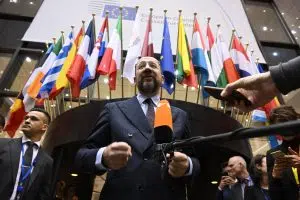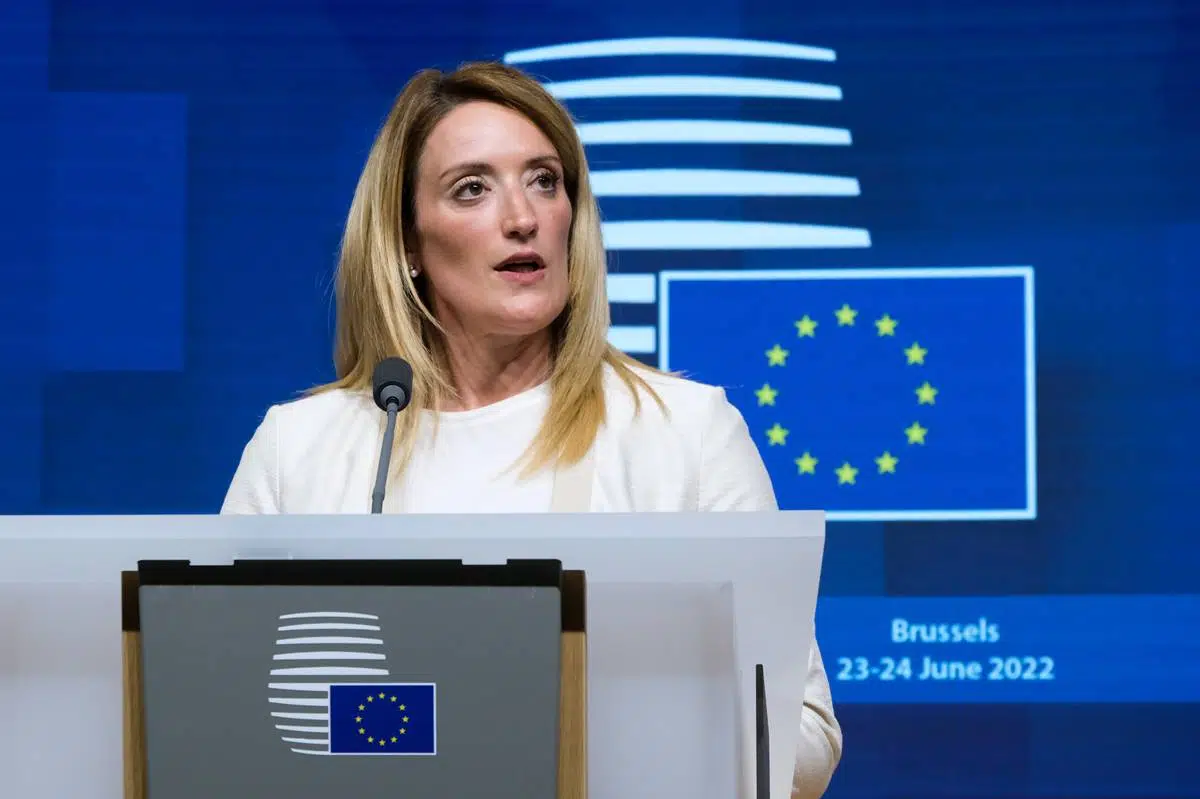Brussels – 22024 could (finally) be the year of the opening of a convention to reform the European Union treaties. On Monday, Dec. 18, the EU Council (the institution where member states meet at the ministerial level) agreed to forward to the European Council (where heads of state and government meet) the European Parliament‘s formal request to convene a Convention to reform the European treaties, contained in a resolution adopted by House (thin) majority at the Nov. 22 plenary session in Strasbourg.
Where we stand
The process was supposed to be faster, and the Parliamentary resolution was supposed to end up on the table of the General Affairs Council on December 12 so that it could have been discussed during the European Council on December 14 and 15, the last one of the year. However, This did not take place, so the dossier passes directly to the future Belgian presidency of the EU Council, which will take over the reins of the EU from January 1 and will have to invite the president of the European Council, Charles Michel, to bring to the attention of the other heads of state and government the issue of revising the treaties on the agenda of a European Summit, probably in the first half of 2024.

Michel convened an extraordinary summit on Feb. 1 to discuss the long-term mid-term budget review. However, it does not seem the most appropriate time to discuss a revision to the treaty. Discussions should end at the March European Council. The idea is to arrive at the June 6-9, 2024 elections with a clear idea of how to bring forward the discussions as the next legislature begins.
Overcoming unanimity in some of the matters up to vote where it is used today (such as foreign policy and financial matters) is the crux of the demands of the European Parliament to have a more efficient and agile European Union on the geopolitical chessboard and in light of new accessions: Fewer deadlocks and fewer stalemates in the European Council, where a single state today can effectively block a decision on which the other 27 member States are on board. MEPs advocate a legislative system that is less unbalanced for the European Parliament, calling for the right of legislative initiative (now held by the European Commission alone) and increasing the number of qualified majority decisions in the Council. As many as five co-rapporteur MEPs, one from each political group supporting the proposal, signed the text of Parliament’s demands: Belgium’s Guy Verhofstadt, for Renew Europe, Germany’s Sven Simon for the EPP, Germany’s Gabriele Bischoff for the Socialists&Democrats (S&D), Germany’s Daniel Freund for the European Greens, and Germany’s Helmut Scholz for the Left. Not supporting the reform project, as expected, were the ECR Conservatives and Reformists (of which Fratelli d’Italia is a member) and the right-wing Identity and Democracy (of which the League is a member), which are against reforming the treaties.
How treaties are amended
To initiate the process, the European Parliament is leveraging the so-called ordinary procedure of Article 48 of the Treaty on European Union (TEU), which requires the European Council by a simple majority (14 out of 27 states) to decide to convene a convention, which will be composed of representatives of national parliaments, heads of state or government of member states, the European Parliament, and the Commission. The heads of state or government, again by simple majority, may decide not to open a convention if there are no drastic changes to be approved, but only an intergovernmental conference. In case of agreement, each member state must approve it. Currently, there is a bloc of at least 13 member states – Bulgaria, the Czech Republic, Croatia, Denmark, Estonia, Finland, Lithuania, Latvia, Malta, Poland, Romania, Sweden, and Slovenia – that staunchly opposes amending the European Treaties, calling the idea of reforming the treaties “premature.” Restarting the reform process was the Conference on the Future of Europe, the one exercise in participatory democracy in the history of the EU that, for nearly twelve months, brought 800 citizens – randomly selected from all 27 member states – to discuss the future of the European Union and to identify what priorities to go with to make the EU integration project more solid.
From the conference came the direct call, through the 49 recommendations, to open the convention, but even though governments with the political clout of Germany, France, and Italy supported the initiative, it stalled, held back by the smaller states, which are appealing to the guarantee of veto power to have more political clout in the Council, where they otherwise risk “disappearing.” Despite the slowness, the process can now be considered fully re-started, and putting pressure on institutions in Brussels is mainly the idea that the reform of the European institutions, especially the reform of the voting system in the Council, should go hand in hand with the EU enlargement process, which Russia’s war in Ukraine has decisively revived. The more the EU enlarges, the more it is necessary to simplify the voting system in certain matters that are predominant – such as foreign policy – and where there is a risk of continued . It is no coincidence that EU reforms are a big theme of the upcoming Belgian Presidency at the helm of the EU for a future-ready Europe. “We need to reform the EU, its policies, budgets, and institutions, in view of the next possible enlargement,” according to the website of the Belgian Presidency.
English version by the Translation Service of Withub




